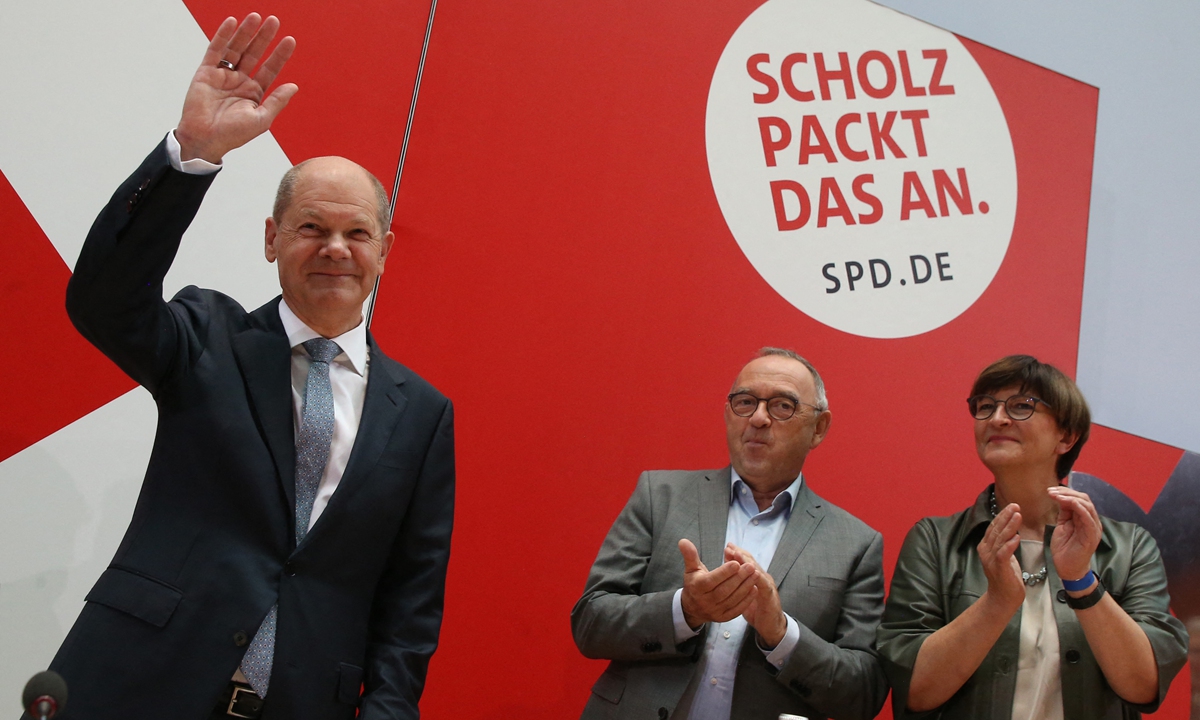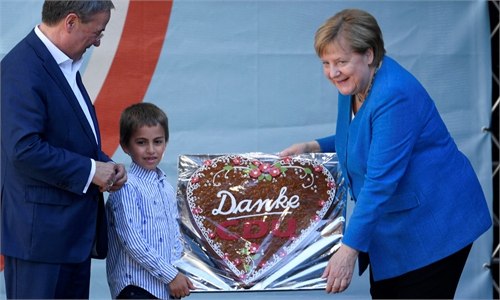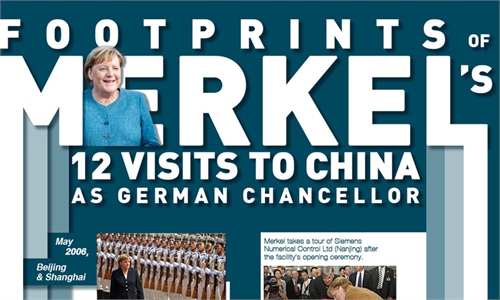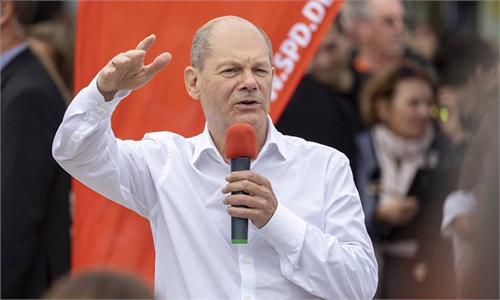
Olaf Scholz (left), the head of the Social Democratic Party (SPD), arrives at the meeting of the SPD Federal Executive Committee at Willy Brandt House the day after the Bundestag elections, on Monday in Berlin. Photo: AFP
The preliminary result of Germany's election showed that the left-leaning Social Democratic Party (SPD) narrowly beat the Christian Democratic Union (CDU), the centrist-right, conservative party, the party of outgoing Chancellor Merkel. This has made Olaf Scholz, leader of SPD, the next possible leader of Germany.
With all 299 of Germany's electoral districts reporting, the SDP won 25.7 percent of the vote, beating the CDU of Chancellor Angela Merkel, which posted record losses by taking only 24.1 percent, according to the Federal Returning Officer, CNN reported.
Scholz said voters wanted him to be the next chancellor. "Many citizens have put their crosses next to the SPD because they want a change in government and also because they want the next chancellor of this country to be called Olaf Scholz," he said in remarks at his party's headquarters, CNN reported.
The name Scholz hardly rings a bell to the Chinese public, until he ran. As the finance minister and vice-chancellor in Merkel's grand coalition government, Scholz has been reticent about his blueprint on the China policy during the election. Yet Chinese observers said Scholz shares abundant connections with China, and the new government will be more likely than others to continue Merkel's policy.
When asked about whether he will change the current policy on China, Scholz told media that the most important thing his party is concentrating right now is to make EU stronger and has its own stance.
He said Asia is rising and many countries in other parts of the world are making great achievements. It is for the world to seek common recognition, and to negotiate in a satisfactory way. He believed that a strong and independent Europe is the basis for the world to achieve peaceful coexistence.
At the televised debate, Scholz avoided talking about China, only stressing the need for a strong and independent Europe on the diplomatic front.
"As the first mayor of Hamburg, sister city of Shanghai, Scholz kept deep connections and cooperation with China, especially with the city of Shanghai," Jiang Feng, a scholar with Shanghai International Studies University, told the Global Times.
Jiang noted that being a seasoned politician on finance and trade, Scholz was aware of the importance China-German ties carry for Germany's economic development. Merkel's "pragmatic" China policy will be more likely carried out by the SPD leader, according to Jiang.
Scholz met with Chinese Vice Premier Han Zheng in China in 2019 at the China-Germany High Level Financial Dialogue. He also met with Chinese President Xi Jinping when Xi visited Hamburg in 2017, where Scholz was its mayor.
"For one thing, Scholz follows the line of former leader Gerhard Schröder, which stresses a pragmatic approach and an independent values system different from [that of] the US," Zhao Junjie, a research fellow at the Chinese Academy of Social Sciences' Institute of European Studies, told the Global Times on Sunday.
"I'll be darned," is what Biden said when a reporter told him that the Social Democrats were ahead in the election. "They're solid," he said.
US media regard the German election as "lacking excitement" and the New York Times mocked Scholz as "boring" and said the campaign has revealed a "charisma vacuum." Jiang said that Scholz's SPD is traditionally not a pro-US party like Merkel's CDU/CSU, and pursues a more "pragmatic" route.
China is willing to cooperate with the new German government to safeguard China-German ties, and hopes the new administration will continue a "pragmatic and balanced" China policy, said Hua Chunying, spokesperson of China's Ministry of Foreign Affairs, when commenting on Germany's election.
Hua also expressed "high appreciation" toward current Merkel, who visited China 12 times while in office, for her contribution to pushing forward China-German ties.
Yet, the results are far from over for what analysts called "the most uncertain election" in German history. The future is filled with uncertainties, as the country's increasingly fragmented electoral landscape gives smaller parties, the Greens and the Free Democrats, king-making powers to decide which one they choose to form an alliance with; and forming a coalition may takes months.
Jiang predicted that China-Germany relations will likely experience a brief bumpy period after a new leader takes office, as the Greens and the Free Democrats, who are hawkish on China, are likely to join a coalition government.
"Yet such turbulence will be short-lived, as Germany will eventually sway back to rationality," Jiang noted, saying that Germany will find it hard to push forward climate change-related issues without China's help, and its business and trade cannot thrive without the Chinese market, "especially after the pandemic, it is hard to decouple from Beijing."



